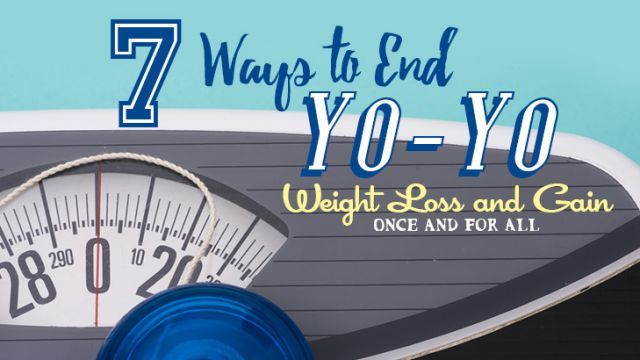
You stare in the mirror each morning, squeezing your belly fat, looking at the chicken wings otherwise known as arms, and promising yourself you’re going to shed those unwanted pounds.
You’ve already tried juicing, starving yourself, and every fad diet known to mankind. Each time, you’ve lost weight and gained it back just as quickly. If you’ve promised yourself you wouldn’t be overweight another summer, and you really want to lose weight, here are some ways to get started and make it last this time.
Take measurements and photos. It may be scary to actually step on a scale to see how much you weigh, but determining how your clothes fit to see if you’ve lost weight may not be the best way to measure your success. You need this information to set your goals and get started making progress. So go ahead and find out how much you really weigh. Then, take a photo of yourself from the front and sideways. It’s a nice way to track your transformation and to keep moving forward with your plan. Try wearing the same outfit each time you photograph your progress for more dramatic results. In a few weeks, you’ll have photos to show off to your friends and family on social media.
Eat more frequently. You’ve gotten used to skipping breakfast, being too busy to stop for lunch, and then feeling free to eat whatever you want in the evening. Although you don’t necessarily feel hungry in the morning, research shows that breakfast really is the most important meal of the day. Breakfast provides your body with the nutrients you need for mental clarity and energy. Eating a healthy breakfast also helps you to avoid high-calorie snacks mid-morning. Other studies show you should eat something every three or four hours for optimal results in boosting your metabolism. That way, you never feel hungry or tempted to grab something less than ideal to eat when you’re feeling ravenous.
Register for a fitness app. A fitness app such as My Fitness Pal will figure out the number of calories you should consume to lose weight so you don’t have to do it yourself. After signing up, enter your height, weight, activity level and other information. Most apps will inform you of the number of calories you need to sustain or lose weight. It also will help you understand portions.
Identify your weight-loss barriers. It’s terrific that you’ve decided to take your first steps down your weight-loss path. It’s also important to figure out what has derailed your plans in the past. Was it too much stress at work? Your children’s misbehavior? Relationship issues? Unresolved emotional issues? When you know what throws you off, you can come up with some solutions to manage them when they arise, because life will continue to happen. That way, you can increase the likelihood of sticking to your plan and obtaining the long-term success you desire.
Understand calories. If you really want to lose weight and keep it off, it’s important to understand what calories are. In the science of weight loss, regulating what you eat will account for about 80 percent of your success. Physical activity comprises the other 20 percent. That means if you really don’t understand calories and how they affect your weight, it’s time to learn how they help people to lose weight — or gain it. It’s a simple equation: the number of calories you eat versus the number you burn off. To lose weight, you’ll have to expend more calories than you consume.
Create a schedule. Prioritizing your time is as critical for weight loss as it is for managing your appointments and other activities. Time management in this area of your life means being willing to plan your meals and workout routine in advance. Initially, this may seem tedious because it requires making a shopping list and going out to get items you need to prepare meals, but it also can make the difference between short-term and long-term success.
Get more rest. The number of hours you sleep is just as important as the number of calories you consume and expend. Studies have shown that people who are sleep deprived have heightened levels of the hunger hormone ghrelin and lower levels of leptin, the hormone that helps you feel more satisfied and full. In fact, study participants who didn’t get enough sleep for five days consumed more carbohydrates and gained nearly two pounds in that time period. So if you’re serious about dropping unwanted pounds, get at least six hours of sleep each night.
—Kimberly Hayes Taylor

